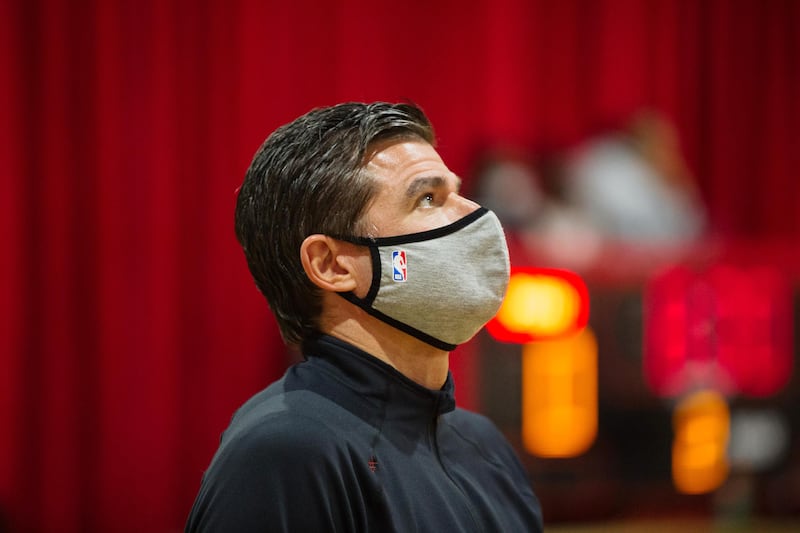On a Monday evening in December, Scott O’Neil is sitting courtside.
He’s not at Madison Square Garden, home of the New York Knicks, where he once served as president. He isn’t even at the Wells Fargo Center in Philadelphia, where he spent eight years as CEO of the 76ers. No, tonight, O’Neil is at The Pennington School in small-town New Jersey.
It’s his daughter’s high school basketball game, and he’s the coach.
For 20 years, O’Neil spent weeknights and weekends in basketball’s most vaunted venues. Ask NBA Commissioner Adam Silver about O’Neil, and he throws around words like “talented” and “smart,” pointing to his “proven track record” of success. “I very much appreciate his insights and friendship,” Silver told the Deseret News, noting their long professional relationship.
But in June 2021, O’Neil unexpectedly stepped away from his post as CEO of Harris Blitzer Sports & Entertainment, the parent company of the 76ers and the New Jersey Devils hockey team, citing a desire to seek “new opportunities.”
When we spoke earlier this month, O’Neil was still in exploration mode. “I’m looking at a whole host of different things,” he told me. But, for now, his focus is on a girls basketball state championship (his team started the year 6-1). Coaching his daughters’ team is something he’s done every winter for some 17 seasons and counting, from 5-year-old junior squads to middle school to now.
And, ever the competitor, O’Neil can’t help but allow his 20 years of experience in the ruthless world of sports shape his coaching style. His team plays physical and fast, utilizing a full-court press and wearing out the opponent. “I want the girls on the other team to raise their hand and say, ‘Coach, give me a break,’’’ he tells me, grinning. But he’s also surprisingly relaxed when, say, a player comes to practice and they’re having a bad day.
“Take the day off,” he admonishes.
That duality — between a fast-paced, competitive CEO and a thoughtful, meditative dad-coach who knows when to press pause — has defined O’Neil’s secret career sauce. It helps explain his conversion to The Church of Jesus Christ of Latter-day Saints, why he incorporates meditation into his regimen, and why he made time to write his first book, titled “Be Where Your Feet Are,” released earlier this year.
He’s candid about how the cutthroat world of professional sports takes a toll. That’s part of the reason why O’Neil’s grateful to refocus. A career is like climbing a mountain, O’Neil observed — “all that rah-rah stuff.” But once you get to the top of that summit, he mused, “you look around, and it’s friggin’ lonely up there.”
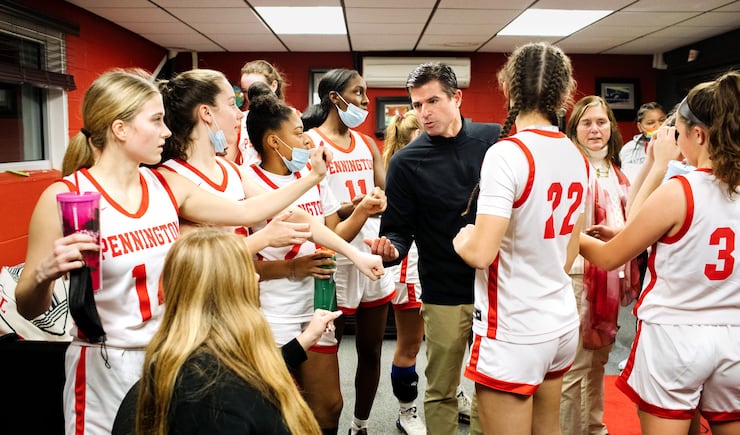
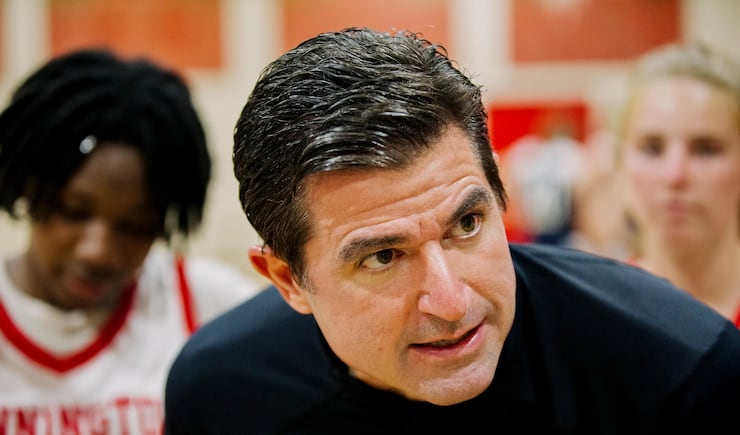
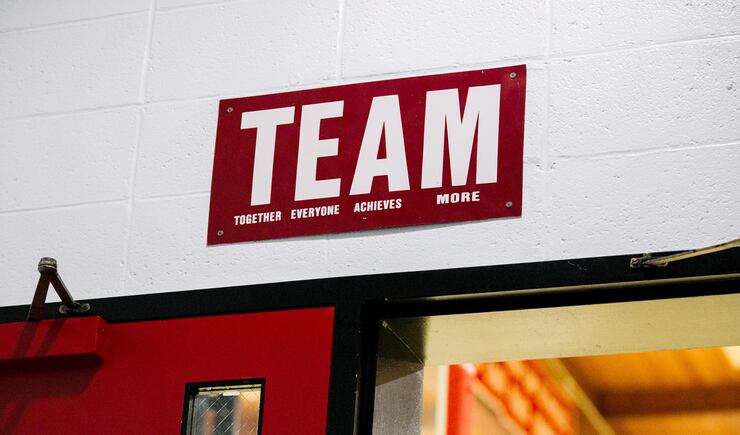
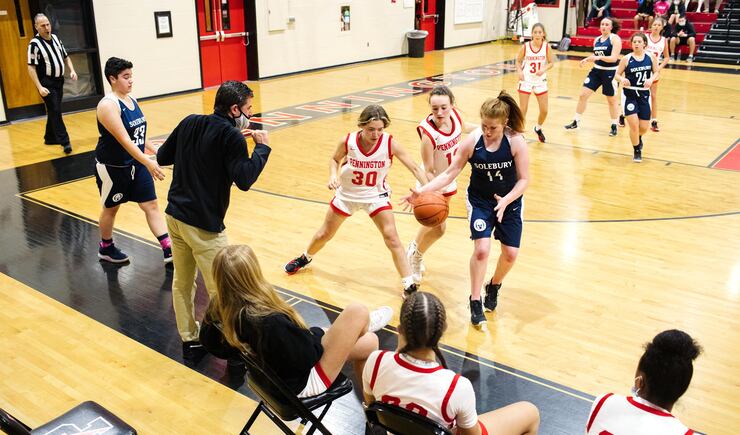
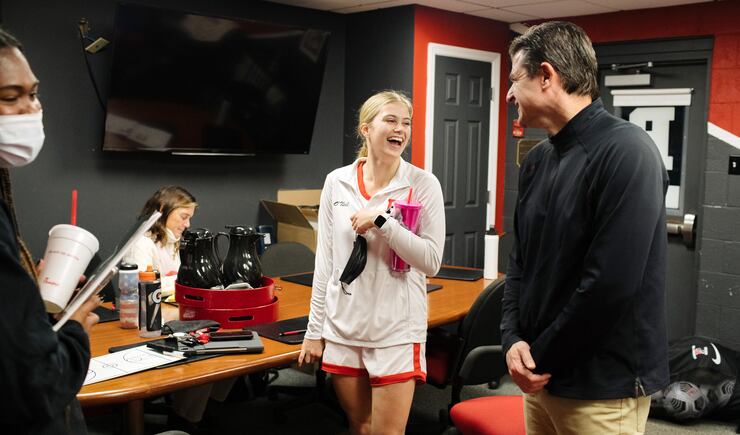
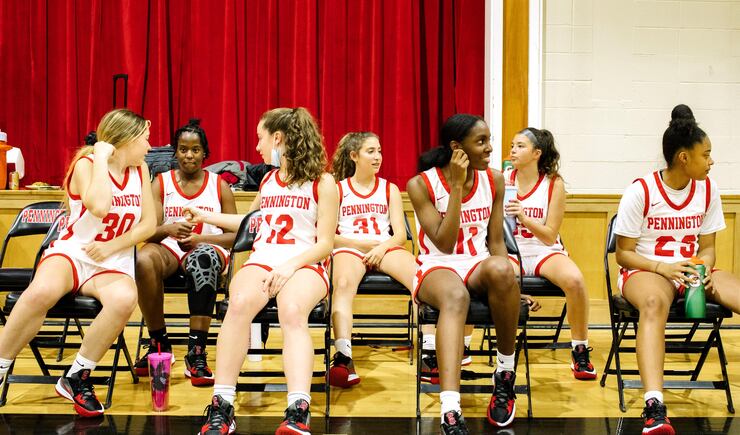
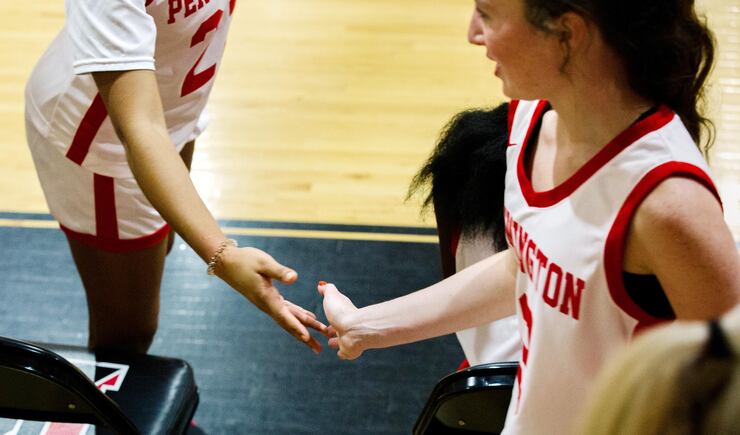



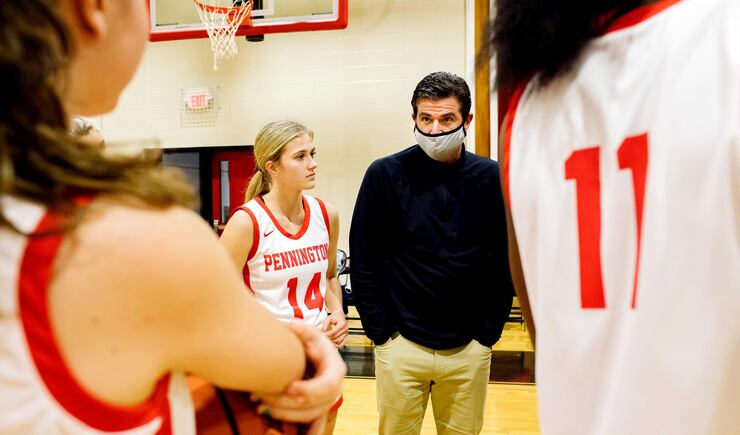
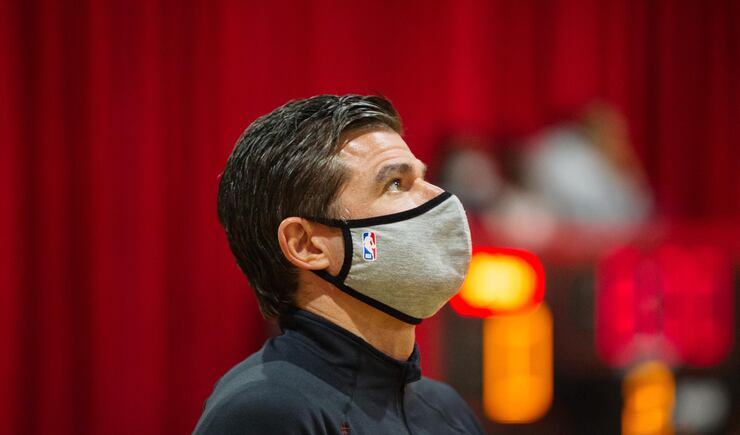
A month before his resignation in June, a Wall Street Journal profile lauded O’Neil’s uncanny ability to pick himself back up after stumbling. “For sports executive Scott O’Neil,” the headline read, “failure is the best teacher.”
The feature strolled through a handful of O’Neil’s more public pitfalls and subsequent successes: a failed tech startup in the early ’90s followed with a job at the NBA’s league offices; getting fired from his perch at Madison Square Garden then landing with Harris Blitzer; wallowing through seasons with the 76ers as the league’s cellar-dwellers before reversing course and winning the Atlantic Division.
But O’Neil’s story began much earlier.
The grandson of Scottish immigrants, O’Neil grew up in near-poverty until his dad struck it big in leadership-development training. A few years later, however, a former work partner split off and started a rival company. The senior O’Neil became “maniacally competitive” and fixated on tanking his former co-worker, Scott O’Neil said.
The intense drive to crush his competitor ironically led to the failure of his own business, and his marriage soon followed. Scott loved his parents, and he may have inherited some of his father’s competitiveness, though he’s tried to learn from O’Neil Sr.’s missteps.
O’Neil’s first job after college was with the NBA’s New Jersey Nets, where he met his wife, Lisa, who came from Utah for a summer internship. O’Neil, then a Catholic, promised Lisa that their children would be raised in her faith, The Church of Jesus Christ of Latter-day Saints.
He made good on his promise, and would later join her church.
After a few years at the Nets and as a corporate sales director with the Philadelphia Eagles, O’Neil went back to school — this time at Harvard Business School. There, then-HBS Dean Kim Clark became a mentor and a friend (Clark, a Latter-day Saint, later served as the commissioner of Church Education). Other business school friends included Tagg Romney (son of Sen. Mitt Romney) and Matt Eyring (son of President Henry B. Eyring, second counselor in the church’s First Presidency). On his first day, O’Neil felt out of place and underqualified; two years later, his classmates chose him to speak at the 1998 graduation ceremony.
Post-MBA, he returned to Philadelphia and started a new business. The idea was HoopsTV, a basketball entertainment service that allowed fans to watch games on their computers. Amid the dot-com boom, it sounded like a billion-dollar idea, and its slogan prophesied its intended success: “If basketball is your religion, HoopsTV.com is your church.”
It found an initial market, but the idea proved ahead of its time. O’Neil and his co-founder failed to foresee that the internet, still in its infancy, would not be able to keep pace with the vision. In 1999, most computers were unable to stream video (Adobe Flash and YouTube were several years from creation). Most of the site’s content was video; most of the videos could not be watched on turn-of-the-century desktops and dial-up connections.
O’Neil, in an attempt to revolutionize the sports entertainment world, ran himself too far ahead. He was forced to push pause.
O’Neil talks about the HoopsTV debacle as a watershed moment in his career. At the time, he and Lisa had a 1-year-old daughter at home. The business failed and he recalibrated, reassessed. That process led to an opportunity in the NBA’s executive office, where he worked for eight seasons before a career that took him to Madison Square Garden and later Harris Blitzer.
Elder Vai Sikahema, a former NFL Pro-Bowler, longtime newscaster in the Philadelphia area and now a general authority seventy of the Church of Jesus Christ, remembers the first time he met O’Neil. At the suggestion of Chad Lewis, a former BYU and NFL player, the two met at a local Philly deli. Elder Sikahema arrived first; when O’Neil reached the table, he leaned in and said, “I’m a hugger — is that all right?”
“Not everybody is ready to hear, ‘get on your knees and pray at night, and whip out your scriptures and get your butt to church.’” — Scott O’Neil
Elder Sikahema obliged.
“In my mind, I’m thinking, ‘OK, he’s a hugger, but I’m a competitor,’” Elder Sikahema recounted, laughing. “So I’m not going to let go of this hug until he does.”
O’Neil, apparently, had the same idea.
By Elder Sikahema’s count, it morphed into a five-minute standoff.
“After that, I felt like I could ask him anything,” Elder Sikahema said, and the two became close friends. They connected over sports — Elder Sikahema was a former Eagles player, and O’Neil a former Eagles employee — as well as their faith. Elder Sikahema asked about his connection to the Church of Jesus Christ, and O’Neil explained that his wife and daughters were members, but he’d never felt like it was the right time for him to join.
Three days after their first meeting, church representatives from Salt Lake City came to meet with Elder Sikahema — then a Philadelphia-area lay church leader— to look for potential venues for a cultural celebration in conjunction with the church’s new Philadelphia temple. As of his meeting with O’Neil, Elder Sikahema had been unable to locate a single potential site.
But once O’Neil offered to help, he immediately had them in contact with Temple University, Villanova University and the Wells Fargo Center, home of the 76ers. The event was hosted by Temple, and O’Neil joined the church two years later. Speakers at his baptismal service included Elder Sikahema, as well as O’Neil’s predecessor at Madison Square Garden, Dave Checketts, and StockX CEO Scott Cutler, among others.
“Do something for your mind, something for your body and something for your soul every day,” O’Neil writes in his book. “Not everybody is ready to hear, ‘get on your knees and pray at night, and whip out your scriptures and get your butt to church.’”
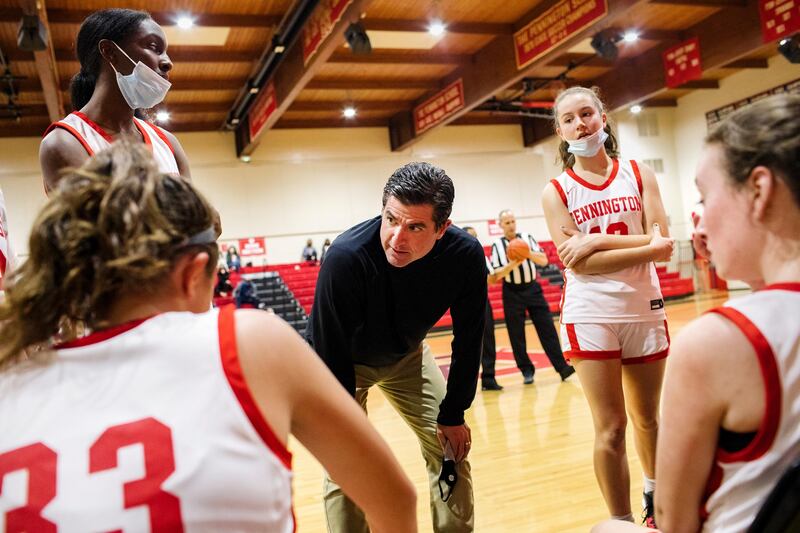
Last week, during a holiday trip to Utah, O’Neil rented out a Salt Lake City-area Shake Shack to gather with local friends and family members. It’s become a Christmastime tradition, of sorts — indicative of a desire to focus on relationships, to focus on his faith and family. It’s what he credits with steering his natural competitive drive in the proper direction.
Seventeen years ago, while coaching his daughter’s 5-year-old rec league team for the first time, an official threatened to kick O’Neil out for egging his team on too aggressively. “Why don’t you ref, and why don’t you let me coach?” O’Neil told the official, who responded by threatening to escort him out of the gym.
Since then, he says, it’s been a constant learning process in his roles from the front office to his personal relationships. “Coaching a team is very analogous to running a company,” he tells me, listing off all the “characteristics of successful executives”: be a hard worker, be intellectually curious and be an extraordinary teammate.
On this Monday evening, the formula pays off. At the final buzzer, the high school team O’Neil coaches walks off the court in convincing fashion: Pennington, 45; the visiting team, 8.
“These girls will be running a company someday,” O’Neil says of his players. “They are smart enough. They’re driven enough. They’re wonderful, wonderful young women.” If anyone can make that assertion, it’s O’Neil, who’s been to the top of that mountain. But now, both he and they are in the right spot — “all the fun and all the action,” he says, smiling, “happens on the way up.”

